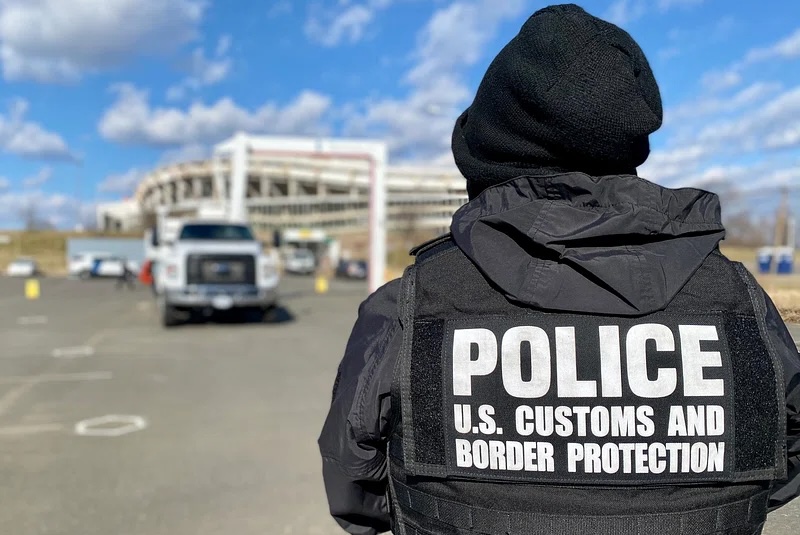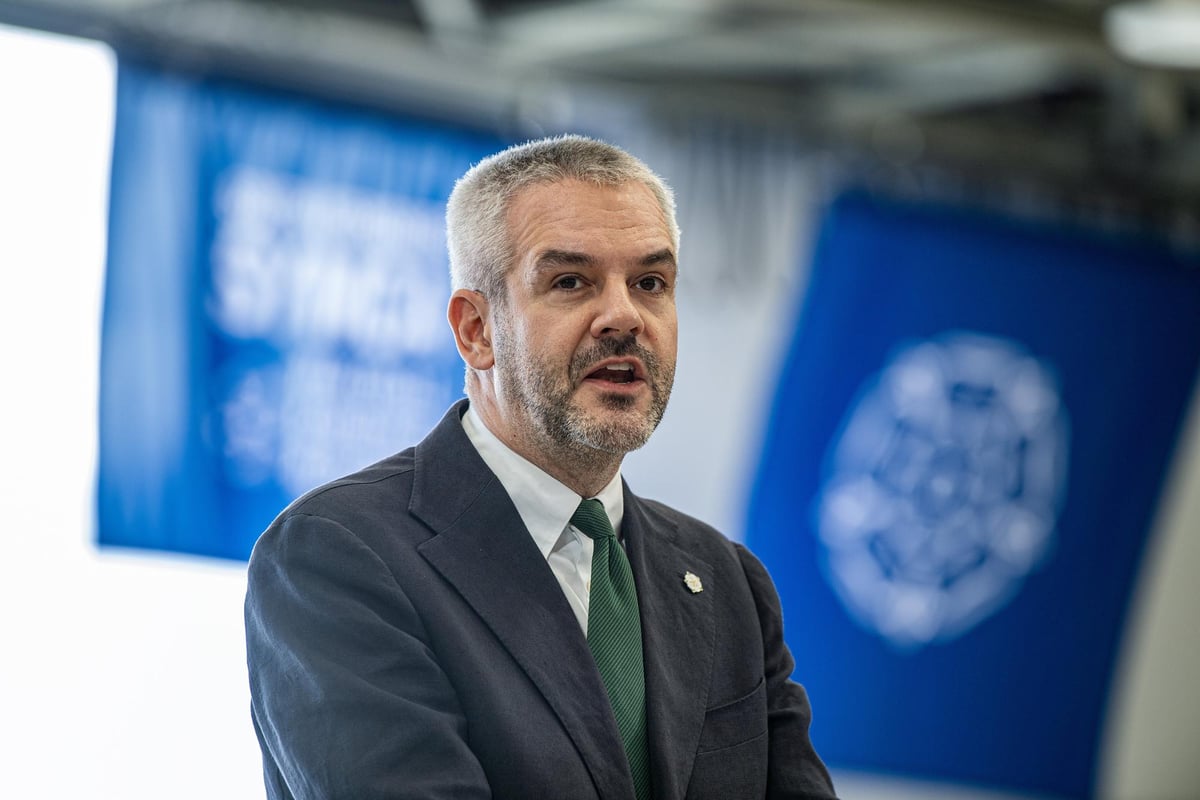UPDATE: President Donald Trump has just announced the commencement of enhanced immigration enforcement operations in Chicago, igniting a firestorm of controversy and fear among local communities. In a shocking post on Truth Social, Trump invoked the infamous line from the film “Apocalypse Now,” declaring, “I love the smell of deportations in the morning,” as federal agents prepare for what has been termed a “war” on American soil.
As reported by NBC News, these operations begin this weekend, with federal immigration agents mobilizing from Naval Station Great Lakes, located in suburban North Chicago. This significant move follows Trump’s recent executive order, which controversially rebrands the Department of Defense as the “Department of War.”
The implications of this announcement are dire for many Chicago residents, particularly within immigrant communities. There is palpable anxiety as families brace for potential raids, with fears that their loved ones could be taken from their workplaces or homes without warning. The enforcement actions, collectively referred to as Operation Midway Blitz, are set to escalate tensions in a city already divided over immigration policy.
Local officials have made their opposition clear. Both the City of Chicago and the state of Illinois have filed lawsuits against the Trump administration, arguing that the federal government is overstepping its bounds and infringing upon the rights of their communities. Judge Sara Ellis has been presiding over these cases, and her recent temporary restraining order aims to protect peaceful protesters and journalists from excessive force during these operations.
In her October 9 ruling, Ellis emphasized that federal agents must not use riot control weapons against individuals who pose no threat, highlighting the potential for civil unrest stemming from these aggressive tactics. “They can say they don’t like what you’re doing, and that’s fine. But they can’t get teargassed for it,” she stated during a hearing that underscored the tension between federal and local enforcement strategies.
Despite the court’s intervention, reports of violence have surged. Eyewitness accounts describe ICE agents, clad in military gear, employing tear gas and rubber bullets against peaceful demonstrators outside the Broadview ICE Detention Center. Video footage has emerged showing agents targeting bystanders, raising significant concerns about the use of force and civil liberties.
Local religious leaders, including clergy from various denominations, have been at the forefront of peaceful protests, calling for compassion and justice amid escalating federal actions. Their cries for reform are met with aggressive responses from federal agents, who have reportedly used excessive force against those merely exercising their right to protest.
The situation escalated further on October 28, 2025, when reports surfaced of federal agents deploying tear gas without provocation during a peaceful gathering in Little Village. This incident prompted legal action, with attorneys alleging violations of the court’s restraining order.
As these developments unfold, the Trump administration is facing increasing scrutiny over its approach to enforcing immigration laws in urban settings. Critics argue that the president is misusing his authority under U.S. law to justify the deployment of federal troops and agents in a manner that threatens community safety and civil rights.
What happens next is critical. With the Supreme Court now involved, deliberations will determine whether Trump’s call for military intervention in Chicago will proceed or be halted. The legal and social ramifications of these actions could reshape the landscape of immigration enforcement across the nation.
Residents in Chicago and surrounding areas are urged to stay informed and prepared as the situation develops. The fear and uncertainty surrounding these federal operations are real, with many families facing an anxious wait for what the weekend may bring. The impact of this “war” will be felt far beyond the streets of Chicago, influencing broader discussions on immigration and civil rights in America.







